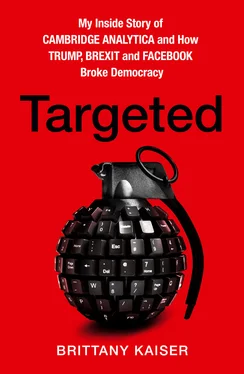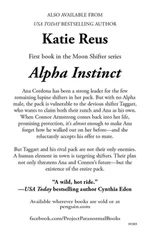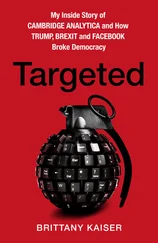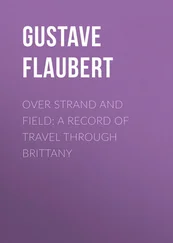1 ...8 9 10 12 13 14 ...17 Alexander wasn’t in the officevery often. The company had just achieved a massive political upset in America, winning an unheard-of thirty-three out of forty-four races in the U.S. midterms. A 75 percent success rate for a communications agency coming in from the outside for the first time was astounding, and Alexander was out and about, using the company’s success to drum up new business. I understood him to be flying here and there to meet Bill Gates and others like him when in America and, when in London, entertaining British billionaires such as Sir Martin Sorrell.
The SCL office wasn’t the sort of place where one brought important businessmen or heads of state. The space itself was dingy and windowless, dark even at noon. Its carpet was a worn-in industrial gray, its drop ceilings pockmarked, uneven, and curiously stained. With the exception of the two glass boxes, one for Alexander and the other for the data scientists, it consisted of a single room of roughly a thousand square feet into which the entire staff was crammed, clustered at two sets of pushed-together desks. The only other private meeting space was a tiny room of about eight by ten feet, with a table, a couple of chairs, and no ventilation; it was dubbed “the Sweat Box.” While his employees packed into “the Sweat Box” like sardines, Alexander preferred to entertain potential clients at a nearby swanky bar or restaurant.
When I finally had a chance to sit down with him in his office in the second week of December, he and I talked about various projects I could pursue. He made it clear that if I wanted to chase social or humanitarian projects, I had to bring in money to fund them. He gave me his blessing to continue my work on post-Ebola Africa, a project I was interested in doing with the World Health Organization and the governments of Liberia and Sierra Leone. With Chester’s help, and with his unrivaled Rolodex of contacts, I would approach each and see if I could get a literal buy-in.
Alexander also suggested that I look into upcoming elections. He asked me to follow up with Chester’s prime minister and with the Central Asian men he had pitched at the sushi restaurant where he and I first met. We looked at other leads as well. Some were mine, and some were connections that I had through Chester and other worldly friends.
In contacting clients, I needed to determine three things right away, Alexander said. The first was “Is there a need?”—meaning was there a project? The second was “Do you have a budget?” And the third, which was as important as the second, was “Are you on a time line?” If someone didn’t have a time line, then there was no urgency to go ahead with the project and, regardless of how much money the client had, the lead would probably go nowhere.
I needed a title, Alexander said, something that “sounded impressive but that’s not too overinflated.” It wasn’t meaningful in-house, he explained, just a tag of sorts by which I could identify myself when addressing clients.
I suggested “Special Advisor,” which Alexander liked because it reflected my part-time status and was sufficiently vague. I liked it because it was the title given to UN envoys whose jobs I coveted, such as “Special Advisor on Human Rights.”
Now all I had to do was earn it.
In my early days as a street fund-raiser in Chicago, when I had all of sixty seconds to persuade someone to hand me over their credit card information and sign them up to make monthly donations to a charity they’d never heard of, I’d become inured to rejection and unafraid of approaching strangers. And in my more recent work, I’d called up ambassadors and other dignitaries and foreign businesspeople and had spent many days a week sometimes in both the House of Commons and the House of Lords. I could talk with a businessman who had been born under the Raj or a prime minister who ran any nation, big or small.
It was with such boldness that in December 2014, I reached out to Prince Idris bin al-Senussi, of Libya, a country I had come to know intimately, face-to-face. A friend had kindly made the introduction for me. The prince had some friends who needed our help. The Nigerian presidential election was just a few months away, the prince said, and the men, very wealthy Nigerian oil industry billionaires who were aligned with the incumbent, were terrified that their candidate would lose. “The men are very religious,” Prince Idris said. “They fear for their lives and the lives of their families” if the incumbent doesn’t prevail, he told me.
I told the prince that SCL had done election work in Nigeria in 2007. This thrilled him. He wanted to make an introduction right away. Could Alexander and I fly immediately to Madrid to meet the Nigerians?
Alexander was more than game, but skeptical of my beginner’s prowess. He had a slight scheduling conflict and couldn’t get there right away. I would have to read through as many case studies as I could, put together a proposal for the Nigerians, and then fly into Madrid alone first. Alexander would arrive only on the second day, at which point he’d pitch them more formally. Was I up for the challenge of doing everything else that was involved before he got there?
I was terrified and excited all at once. This would be the first time I’d represent the company, and my understanding of the depth and breadth of it was still so shallow. I had been on the job for a little more than two weeks. I also knew next to nothing about Nigeria, except that it was the most populous country in Africa, with a quarter of a billion people. I had only beginner-level knowledge of its history and the present state of its politics, not to mention the issues and players in its imminent presidential election. Still, even this early, a viable contract seemed to be in front of me, one, Alexander had told me, that could be worth millions. The Nigerian prospect met all the criteria: it was a clear project, the clients had money, and the time line was urgent. Yes, I told Alexander. I’d go to Madrid.
In advance of the meeting, I made my way around the SCL office looking for any information I could find on the 2007 Nigerian campaign—there wasn’t much on it, so I pored over documents and case studies from other projects around the world. I pulled an all-nighter and threw together a proposal with a junior member of staff. It was sufficient as a start, especially under the rushed conditions, but with the election scheduled for February 14, 2015, there was so little time left that we didn’t even expect to win the contract—not that this deterred me in the least.
The situation in Nigeria was complex. The potential clients were backing a man named Goodluck Jonathan, the incumbent president. Jonathan was a Christian and a progressive, my human rights attorney friend John Jones QC informed me, a leader who had brought substantial reforms to the Federation of Nigeria since taking office in 2010. He was seen by some as a champion of youth and the underprivileged; he had worked to clean up environmental disasters, including lead poisoning that had killed some four hundred children in an impoverished region of the country; and he had endeavored to stabilize the nation’s energy sector by privatizing its wholly unreliable power grid. But his administration was corrupt, and he had recently become unpopular when he failed the country in a number of ways, not the least of which was his very public inability to bring home two hundred schoolgirls who had been kidnapped by the militant group Boko Haram. Not long before, he had been accused of masterminding a terrorist bombing. But as my friend John Jones informed me, in the election, Jonathan was the lesser of two evils.
The alternative was Muhammadu Buhari.
In three decades, Buhari had been involved in two military coups. In the first, he was appointed provincial governor, and in the second he claimed the presidency. Under his repressive rule, he had voiced support for Sharia law and persecuted both scholars and journalists. Various groups had filed complaints against him at the international criminal court, accusing him of human rights abuses and crimes against humanity (which Buhari denied and in the end the ICC did not pursue the complaints). 1In fact, according to international law, if the accusations were true, it should have been illegal for him to run for president at all. John agreed with the prince and his oilmen friends that if Buhari won, the country could descend into violence. 2With not much time left until the election, it was an imperfect situation, but as a human rights activist, I felt assured that at least SCL would be on the better side of the fence.
Читать дальше












